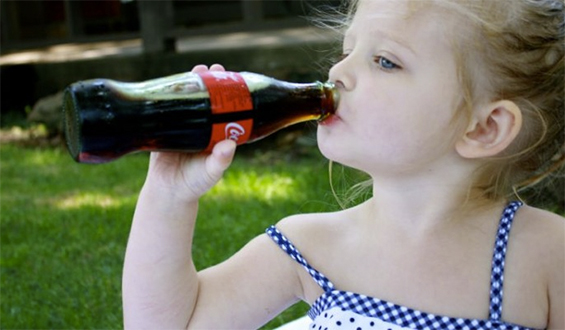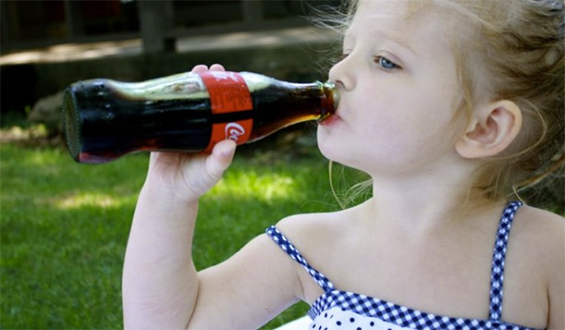
A New York Times columnist is making a push for the government to institute a minimum drinking age for buying soda, and would like to see ID required for children who try to purchase sugary drinks at stores.
Food journalist and New York Times opinion writer Mark Bittman recently argued on Luckypeach that limiting the availability of soda for children was equivalent to having a minimum age requirement for buying cigarettes.
“It’s really the equivalent of saying smoking cigarettes makes you really cool. When you’re fourteen and you want to be cool, you should start smoking cigarettes. We don’t allow that anymore,” said Bittman. “In other words, you have to be sixteen to buy a Coke, because we don’t think that you’re able to make a decision about how much soda you can drink until you’re sixteen.”
He goes on to say the age limit should be 20, but says that is too “far-fetched” an idea, so he is willing to compromise with 16 — although he did admit to Whitney Falloon for Eater that 16 may be a more realistic age limit, after which he added that it should not be sold to children at all. Placing a minimum age required on purchasing sugary drinks is an idea that has been previously suggested by scientists.
He would like to see ads that target children be restricted, although he admits doing so would cause First Amendment issues. His comments refer to children as “physically immature” and incapable “of making rational decisions,” writes Clint Rainey for GrubStreet.
His comments suggest that bad habits, which are hard to break, are created at a young age, and allowing children to consume sugary drinks creates unhealthy adults who have habits they would like to break but can’t.
Bittman is also an avid supporter of a nationwide tax for soda purchase. So far, the only city to incorporate such a tax is Berkeley, California, with supporters saying the higher price may cause fewer people to consume sugary drinks and also help to decrease the obesity epidemic across the country, writes Guy Bentley for The Daily Caller.
However, although the sugar tax implemented in Mexico has received high praise from the New York Times, the results suggest that not much has happened. In the preliminary study “Taxing Calories in Mexico,” which took a detailed look at 8,000 households, researchers found that almost all effects of the sugar tax concerning calories consumed to be minimal.
The study adds that the lowest-income households are those that are hardest hit by the tax because they spend a larger portion of their income on sugary drinks than other consumers.
The FDA introduced new restrictions in 2010 concerning tobacco marketing, including no longer allowing cigarette companies to sponsor sporting events. The question now becomes how willing Americans will be to accept similar restrictions on sugary drinks.
A number of restaurants, including IHOP and Applebee’s, have already begun the process by taking sodas off of their children’s menus.




